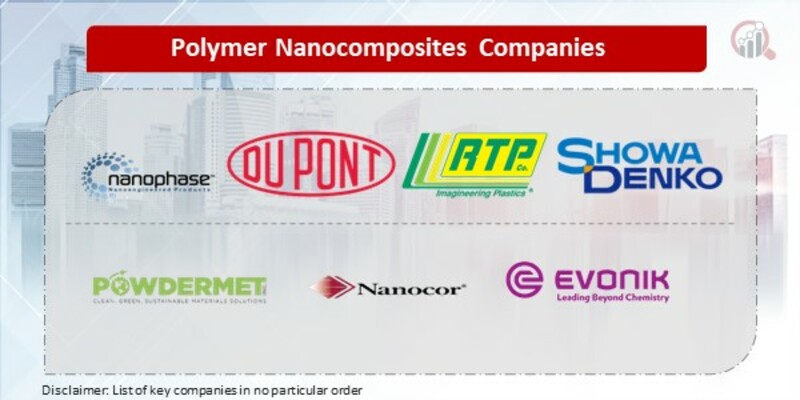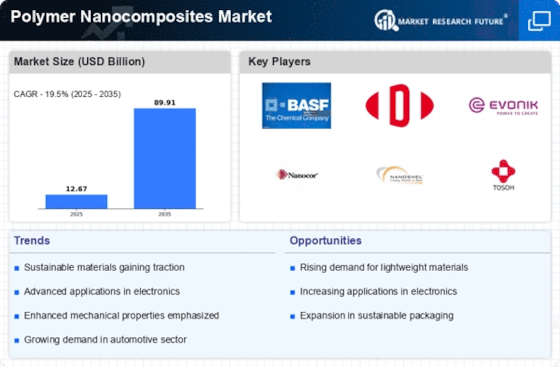Top Industry Leaders in the Polymer Nanocomposites Market

The polymer nanocomposites market, where microscopic reinforcements enhance the properties of everyday plastics, is poised for significant expansion. This growth paints a vivid picture of the fierce competition brewing within this transformative market. Let's delve into the strategies, factors, and developments shaping this nano-engineered landscape.
Strategies Shaping the Nano Arena:
-
Established Giants: Industry leaders like BASF, Arkema, Evonik, and Solvay leverage their extensive R&D capabilities, diverse product portfolios, and global reach to maintain dominance. Their strategies focus on continuous innovation of unique nanocomposites, strategic acquisitions, and partnerships with key players across various industries. -
Regional Champions: Companies like Toray Industries in Japan and Formosa Plastics in Asia hold strong positions in their respective regions. They capitalize on cost-effective production, cater to regional preferences, and build strong local distribution networks. -
Niche Specialists: Emerging players like NanoXplore and Nanocyl carve niches with specialty nanocomposites designed for specific applications, like high-performance electronics or flame-retardant materials. They focus on unique value propositions and cater to specific customer segments, often commanding premium prices.
Factors Influencing Market Share:
-
Nanocomposite Performance: Offering a diverse range of nanocomposites with enhanced properties like superior strength, electrical conductivity, heat resistance, and barrier properties attracts a wider customer base and increases market share. Continuous innovation is crucial for differentiation. -
Cost Optimization and Scalability: Optimizing production processes, sourcing raw materials competitively, and offering cost-effective solutions are key, particularly in price-sensitive sectors. Scalability of production to meet growing demand is also critical. -
Sustainability and Regulatory Compliance: Adhering to environmental regulations and developing eco-friendly nanocomposites with bio-based or recycled materials resonates with customers and opens doors to new markets. -
Industry Expertise and Technical Support: Providing exceptional technical support, application design assistance, and deep industry knowledge builds trust and repeat business, leading to market share consolidation. -
Regional Growth and Emerging Applications: Identifying high-growth regions like Asia and catering to emerging applications like energy storage, 5G technology, and lightweight automotive components presents significant market share opportunities.
Key Players:
- Nanophase Technologies Corporation
- The Arkema Group
- I. Du Pont De Nemours And Company
- RTP Company
- Showa Denko Carbon, Inc.
- Inframat Corporation
- Powdermet, Inc.
- Evonik Industries AG
- Nanocor, Inc.
- Nanocyl S.A.
Recent Developments :
-
September 2023: BASF introduces a self-healing polymer nanocomposite for automotive interior components, aimed at reducing repair costs and enhancing durability. -
October 2023: Arkema acquires a startup specializing in 3D printing with nanocomposites, expanding its reach into additive manufacturing applications. -
November 2023: A team of researchers at MIT develops a novel method for tailoring the properties of nanocomposites at the atomic level, opening doors to next-generation material design. -
December 2023: Toray Industries unveils a production facility dedicated to high-performance nanocomposites for aerospace applications, aiming to capitalize on the growing demand for lightweight materials.










